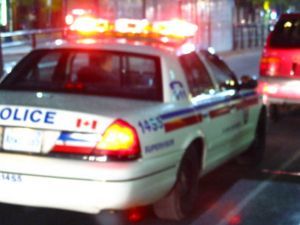A man convicted of felony DUI in Florida has been granted a new trial by Florida’s First District Court of Appeals, which ruled a violation of the state’s accident report privilege in Wetherington v. Florida was not harmless.

For Lauderdale DUI defense lawyers recognize that this decision underscores the rights of defendants in the course of a DUI investigation.
Florida Statute 316.066 holds that information given to a law enforcement officer for the purpose of completing a crash report, as required by Florida law, will be done so without prejudice to the individual reporting. That is, no such report or statement can be used as evidence in any trial, civil or criminal.
The whole point is to encourage people to make accurate reports of circumstances surrounding a crash so that officials can use this information to make highway safer. State legislators decided that it is better those statements be excluded from civil and criminal actions before a jury, rather than to hinder the goal of making highways safer.
This privilege is applicable only as long as no Miranda warnings are given. If an officer tells a defendant he or she must respond to certain questions regarding the accident, there has also has to be an express statement following it to the effect of, “This is now a criminal investigation,” followed by a Miranda warning, before those statements can be admitted into evidence for use at trial.
Here in the Wetheringon case, the trial court had overruled an objection to testimony given by an officer regarding statements made as he gathered information for the crash report.
According to court records, the defendant was charged with felony DUI following a single vehicle accident in Alachua County. It was his third DUI arrest. He and his fiancee were the only two occupants of the vehicle, and they did not suffer serious injury. The vehicle veered off the road and into a ditch shortly after the pair left a bar.
The defendant’s fiancee would later say that she was the one behind the wheel when the car wrecked, and that she and the defendant switched places immediately afterward so he could see if the vehicle would re-start.
However, there was one witness who said he had seen the vehicle’s headlights ahead in the distance as the car crashed. It was approximately a minute before he reached the scene. At that time, the witness says the male defendant was in the driver’s seat and the female was in the passenger seat.
Also testifying was the responding officer, who indicated that the defendant had told him he was the one driving at the time of the crash.
The state also presented evidence in the form of a phone call the defendant made from jail to an unidentified person. In the call, the defendant lamented that he “might have just (expletive) ruined my life.” Prosecutors held this indicated the defendant had felt consciousness of guilt.
During the trial, defense lawyers objected to the officer’s testimony regarding the defendant’s statement of being behind the wheel at the time of the crash, arguing the statement was inadmissible due to accident report privilege. The trial court overruled.
The jury found the defendant guilty of DUI. Based on his two prior DUI convictions, it was considered a felony offense, and he was sentenced to three years in prison, followed by two years of probation.
The defendant appealed on six grounds. The First District affirmed on five of those. However, on the issue of accident report privilege, they determined his appeal had merit.
The court pointed to the fact that there was no other direct evidence – aside from the officer’s testimony – that the defendant had been behind the wheel at the time of the wreck. The statement from the other driver might cause a person to infer the defendant was driving at the time of the wreck, but he never actually saw who was driving at the moment the car crashed. The phone call might suggest the defendant was troubled, but he never admits in that call to being the driver. And the fiancee insists she was the one who was driving.
The appellate court indicated that while it was still possible there was enough evidence for a jury to convict the defendant beyond a reasonable doubt, it was also possible that a reasonable jury, absent the officer’s testimony, could have determined there was no direct evidence he was driving at the time of the crash. Therefore, the error was not harmless, and the conviction was reversed and the case remanded for a new trial.
Call Fort Lauderdale Criminal Defense Attorney Richard Ansara at (954) 761-4011. Serving Broward, Miami-Dade and Palm Beach counties.
Additional Resources:
Wetherington v. Florida, April 6, 2014, Florida’s First District Court of Appeals
More Blog Entries:
Court: DUI Blood Test Warrant Must be Substantive, April 22, 2014, Fort Lauderdale DUI Defense Lawyer Blog
 Fort Lauderdale Criminal Attorney Blog
Fort Lauderdale Criminal Attorney Blog


